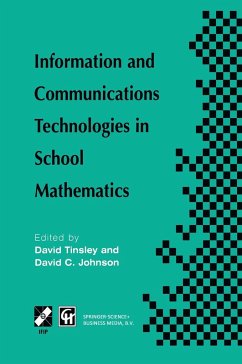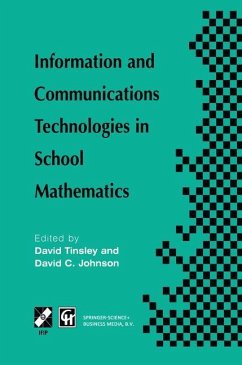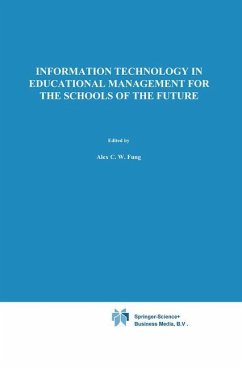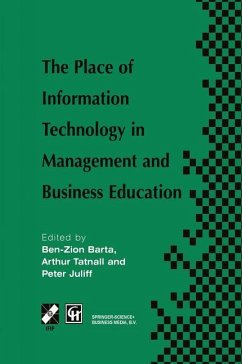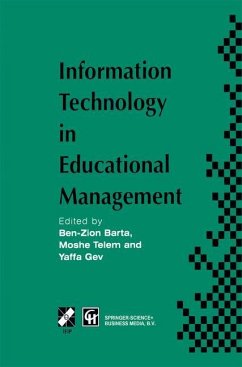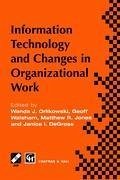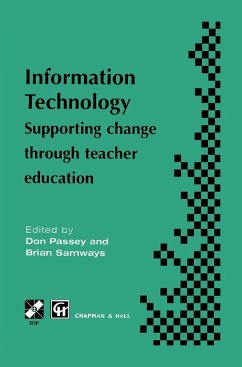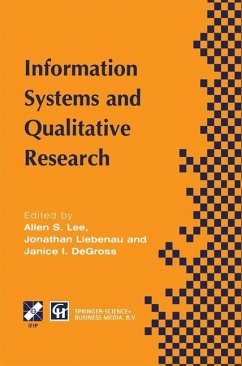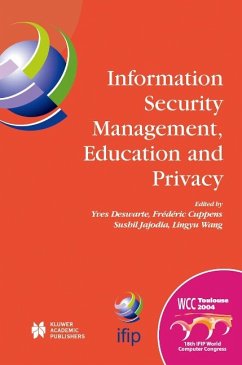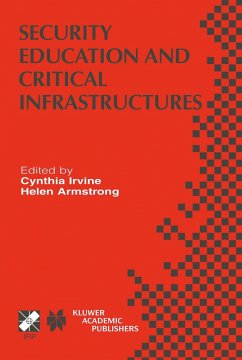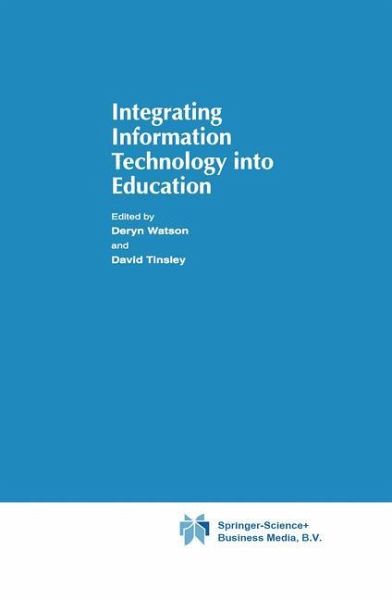
Integrating Information Technology into Education
Versandkostenfrei!
Versandfertig in 1-2 Wochen
153,99 €
inkl. MwSt.

PAYBACK Punkte
77 °P sammeln!
Deryn Watson and David Tinsley The topic of the conference, integrating infonnation technology into education, is both broad and multi-facetted. In order to help focus the papers and discussion we identified 7 themes: - Current developments in society and education influencing integration; - Teachers, their roles and concerns; - Learners, their expectations of and behaviour in an integrated environment; - Developments and concerns in the curriculum; - Successes and failures in existing practice; - Organisation and management of integrated environments; - Identification of social and political ...
Deryn Watson and David Tinsley The topic of the conference, integrating infonnation technology into education, is both broad and multi-facetted. In order to help focus the papers and discussion we identified 7 themes: - Current developments in society and education influencing integration; - Teachers, their roles and concerns; - Learners, their expectations of and behaviour in an integrated environment; - Developments and concerns in the curriculum; - Successes and failures in existing practice; - Organisation and management of integrated environments; - Identification of social and political influences. Each author was invited to focus on one theme, and these remained strands throughout as can be seen from the short papers and focus group reports. The first and most significant concern therefore was to be clear about our notions of integration; what do we mean and how is this relevant? Our keynote paper from Cornu clearly marked out this debate by examining the notion of integration and alerting us to the fact that as long as the use of IT is still added to the curriculum, then integration has not yet begun.



